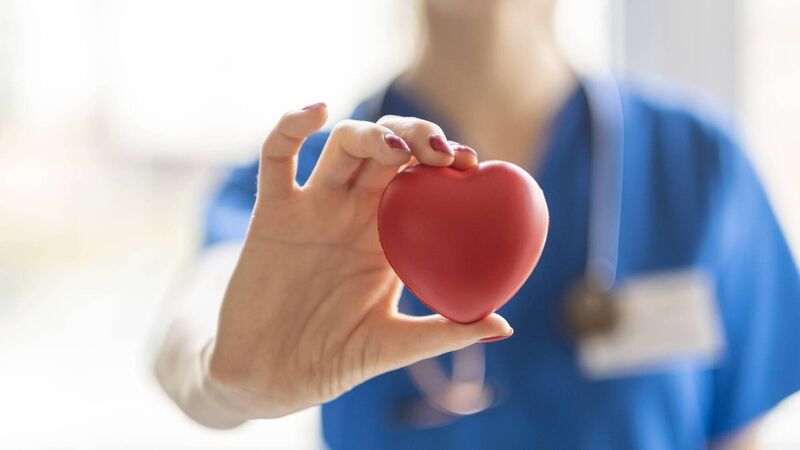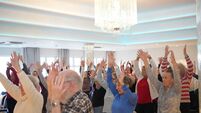Dr Michelle O'Driscoll: How to take care of your heart health

Female doctor is holding a heart in the hands. Heart is a life!
FOR the week that’s in it, lets keep things heart-related, and consider our own physical heart health, and in particular cardiovascular disease.
High cholesterol is a main culprit of these blockages. Imagine trying to wash a thick liquid down the plughole of a sink. Eventually, a blockage will occur. Exercise and diet can influence our cholesterol levels, which are shown via a blood test. Sometimes, however, high cholesterol is just genetic and beyond our control in terms of lifestyle.
Blood pressure reflects the effort that the heart needs to make to keep pumping the blood. Two numbers are given, the higher number is the pressure when squeezing, the lower number is the pressure when relaxing.
Weight, particularly weight around our tummies, can be problematic in terms of CVD, and finding a healthy weight helps to in turn counteract high cholesterol and blood pressure. Losing weight in a slow, sustainable way is the best approach, avoiding bingeing and fad diets. Food low in saturated fats and salt is generally advised.
Make that health check – blood tests are a necessary part of checking in with our heart health, along with a blood pressure check. As we age, this should be done more regularly.
Get moving – exercise has multiple health benefits for our heart, and is free medicine for our cardiovascular health. It helps to reduce weight, strengthens the heart muscle, and reduces the cholesterol that can clog the blood vessels.
Consider quitting – as clichéd as it sounds, giving up smoking if you do smoke really is the single most beneficial thing you can do for your health. While the obvious risk of lung cancer comes to mind, it also greatly improves the health of your blood vessels, and reduces the risk of blockages. Chat to your pharmacist or doctor about best steps. Making the decision is something only you can do, but they can help you to identify your reason for quitting, and then support you every step of the way.
Take your medication – even with all the lifestyle changes, medication is sometimes just necessary to treat the cardiovascular disease. Make sure to take it as prescribed, as there will be minimal advanced warning signs to tell you that something is not right. In some instances surgery may be required, but this will be in consultation with your healthcare team.
Dr Michelle O’Driscoll is a pharmacist, re searcher and founder of InTuition, a health and wellness education company. Her research lies in the area of mental health education, and through InTuition she delivers health promotion workshops to corporate and academic organisations nationally.







 App?
App?


